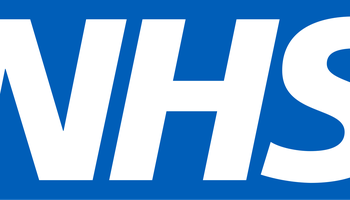
As outlined in our white paper, ‘Data infrastructure for a healthy nation’, developing data and digital infrastructure to support citizens in being physically active will be essential for achieving the government’s ambitions for embedded preventative healthcare. Physical inactivity costs the UK economy £20 billion annually and contributes to widening health and social inequalities. At a time when people are increasingly interacting with digital services and platforms, and digital literacy is growing, now is the time for the government to properly support the ambition of OpenActive to make it as easy to find a physical activity as it is a hotel or a restaurant. As outlined in the white paper, significant opportunities are emerging around the NHS App, which could serve as a hub for booking immunisation appointments, accessing medical advice, or discovering fitness activities (from OpenActive data flows).
Indeed, OpenActive's mission to standardise physical activity data has never been more relevant, and its potential so significant, given the recent focus on supporting the digitisation of state services. This has been achieved in other countries, for example, as outlined in our white paper, the Singaporean Health Hub, which offers health advice, GP booking and a steps challenge, and therefore offers a brilliant use case of the potential of a nationally funded health app like the NHS app.
At a recent collaborative roundtable meeting of regional stakeholders in Manchester, attendees came together, united in purpose, to discuss these pressing topics. As Orsola de Marco, the Head of Product and Innovation at the Open Data Institute (ODI), outlined in her opening remarks, the existing impact of OpenActive is significant, with "119 data providers. 1290 activities and facilities. 3.2m classes and slots. 186k alone in Manchester.” Indeed, she went on:
Manchester has adopted OpenActive before others: their perspective is crucial to understanding further implementation.
The ODI’s CEO, Louise Burke, outlined the context of opportunity in her opening remarks, mentioning that:
There has been a shift in the UK Government, with people paying more attention to the data infrastructure. They are visionary about AI, have been producing opportunity plans, and exploring the benefits of open data.
In the roundtable session, participants considered significant opportunities around uniting the physical activity sector, along with delivering on the digitalisation goals outlined in the 10 Year Health Plan for England: Fit for the Future. There is commitment within the sector to support these aspirations. Attendees, who all came with unique experiences, shared direct experience of delivering, campaigning, and working locally to provide integrated physical activities and health interventions for citizens. The backgrounds of the contributors were wide-ranging, including individuals from local government, like the Greater Manchester Combined Authority, alongside those who deliver health and physical activity services, such as Active Partnerships, and others from healthcare organisations and academia, such as representatives from the University of Oxford and the NHS.
Data as critical public infrastructure
The first point of discussion was how to achieve widespread recognition of data standards as critical public infrastructure to support a healthier nation. This followed from the first recommendation in the white paper, where we called for the formal recognition of OpenActive (and complementary open standards) as fundamental components of national data infrastructure to enable the development of services that can look at a person’s wellbeing holistically. We believe that recognising critical public infrastructure is essential for ensuring that the maintenance and governance of data standards are properly funded and supported, thereby delivering longevity and value to citizens and businesses that rely on these data flows.
This led to discussions around the value and challenges of integrating and mandating data standards. Most participants agreed that while people recognise the value that publishing data openly has, there are often competing incentives which organisations must wrestle with when implementing the OpenActive data standard, such as the uniquely higher cost of implementation of the standard for smaller businesses and organisations, in comparison to larger commercial interests who often have their own expansive data sharing systems already developed. Among participants familiar with OpenActive, the discussion centred on the significant fragmentation within the sport and physical activity sector, an issue that many proposed the standard could address. For wider adoption of data standards, participants felt it was critical to develop a way to mandate them, with support in place to help organisations embed this mandate.
As we look ahead to uniting the health and physical activity sector, much of the discussion in Manchester emphasised the need to configure a 'cash, carrot, stick' approach to driving collective, broader implementation. Specifically, if OpenActive became integrated into healthcare contexts, it would need to be carefully contextualised within the realities of healthcare delivery, where providers already face significant pressure regarding what they must prioritise in service provision. For physical activity to become a genuine priority that enables adoption of OpenActive on the ground, it must be tightly linked to robust incentive mechanisms that account for healthcare providers' core objectives and operational constraints. This might involve a combination of funding or investment, incentives, and regulatory or rules-based approaches. Arguably, this must be supported by the government to properly achieve adoption of the standard at scale, which would ensure the broadest impact, and to align data infrastructure as part of any other infrastructure that the government is responsible for maintaining and expanding for the benefit of the public.
We outlined the importance of this recognition of data infrastructure as a critical growth-driving sector in our response to the Industrial Strategy consultation.
The NHS App and the 10 Year Health Plan for England
Much-discussed across the roundtable event was the 10-Year Health Plan for England, released in July 2025. Its emphasis on the strategic use of the NHS App represents a significant opportunity for innovative approaches to medical advice signposting and physical activity promotion. Many participants expressed the view that OpenActive is well-positioned to advance and support these objectives, highlighting the potential for the NHS App to utilise OpenActive data. This could involve building services that direct users towards fitness groups, walking groups, or social sessions in the community.
This would support the 10 Year Health Plan for England and its desire for three foundational shifts within the NHS, with a move from hospital to community, whereby care is delivered increasingly in the community; from analogue to digital, with the creation of a fully digitally enabled NHS, anchored around the NHS App; and finally, a move from sickness to prevention, shifting the focus to disease prevention through targeted interventions, earlier in people’s lives.
Testimony from our roundtable signalled a public-driven desire for these shifts, particularly around preventative care and community-delivered care. One participant mentioned that they had experienced a surge in patient-driven self-referrals, post-COVID, for social prescription and support services. It is this potential acceleration in self-referral that proper integration of OpenActive could support to improve the health of the nation.
Building on this potential, some participants in the roundtable specifically highlighted Manchester as an ideal region for piloting NHS App integrations, noting that Manchester has linked up Integrated Care Boards (ICBs), which could facilitate coordinated implementation. As was also suggested, a pilot could be focused on building localised pathways through primary and secondary health centres, understanding hyper-local needs and realities. There was much discussion about the potential to develop social prescribing systems that support GPs, suggesting that OpenActive could bridge the gap between surgery-side prescribing and operator-side delivery by integrating with the two main GP record systems used across the country. In this way, the true potential of OpenActive to enable improved health outcomes could be explored.
Questions of sustainable governance
The final discussion point from the roundtable focused on the last policy recommendation in our white paper, calling for a sustainable governance model for public data standards, enabled explicitly through a data institution to properly steward them, ensuring continued development and interoperability.
Regardless of all of the attention-grabbing headlines about Artificial Intelligence (AI) or Artificial General Intelligence (AGI), there was a clear consensus among the attendees that there is a strategic opportunity to build and maintain the basic data infrastructure to support advancing technologies. This echoed points made by the ODI in our responses to the NHS consultation ahead of the 10 Year Health Plan and the Industrial Strategy green paper. As the ODI has said, “without data there is no AI.” Indeed, strong, trustworthy data infrastructure is the lifeblood of the global economy, on a par with essentials like clean water, transport networks and the energy system.
Participants at the roundtable mentioned that proper governance of the OpenActive data standard would require extensive outcome and participation tracking, along with standardisation of types and forms of activity to further develop the standard specifically for healthcare and social prescribing. This linking up and integration would be beneficial for the sector, uniting public-private partnerships, leisure delivery and the wider health system, with governance potentially being truly democratic and collaborative.
Looking forward
Perhaps the most honest discussions of the day centred on the persistent tensions that any standardisation effort must navigate. The "what's in it for me?" question permeates every stakeholder conversation, and different actors in the ecosystem have vastly different incentives and disincentives.
Despite the complexities discussed in the roundtable, there is genuine cause for optimism. The very fact that diverse stakeholders, from community fitness providers to NHS administrators, are engaging seriously with these challenges signals a sector ready for transformation. With a 10-Year Health Plan that aims to engage with proper data infrastructure investment, along with a sector that is increasingly digitised, there is a significant opportunity. Indeed, conversations over the years have evolved from whether standardised activity data matters to how we make it work at a local level, for everyone. This is a shift that represents the foundation upon which meaningful progress can be built.
Thank you to all of those who took the time to attend our roundtable. If you would like to discuss any points or themes further, or are working on projects with complementary aims, please do get in touch.


